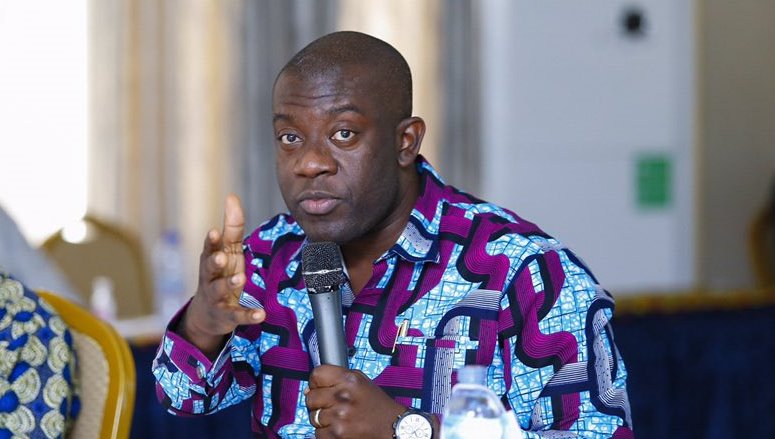Data in 2021 Budget exposes Oppong Nkrumah’s Lies on Covid-19
- Advertisement -
Data in the 2021 budget had exposed Kojo Oppong Nkrumah, the Minister of Information for wrongly claiming that Ghana spent GHC 19 billion on COVID-19 related expenditure.
“…We spent about GHC 19 billion to respond to COVID, and we did not necessarily charge the Ghanaians for it. We had to borrow, we had to take money from the bank of Ghana to deal with the Covid pandemic,” Kojo Oppong-Nkrumah told PM Express of the Multimedia Group yesterday.
- Advertisement -
However, contrary to this claim, the 2021 budget statement clearly shows that the government spent a measly GHC 1.7 billion directly on COVID-19 expenditure and some less than GHC 200 million in the budget support directed at COVID-19 expenditures.
- Advertisement -
In total, the Ghanaian government spent approximately GHC 2 billion directly to fight COVID-19. The bulk of the GHC 19 billion allocated during the COVID-19 pandemic last year was used as “Budget Support” that covered debt servicing, and “other regular budget expenditure”.
The paltry GHC 1.7 billion was what the government used on relief to health workers, soft loans for Micro, Small, Medium Enterprises (MSMEs), evacuation of stranded Ghanaians, support to household, and other expenditure.
Read More: Ethnocentric Textbooks: Blaming Napo is Sinister
Appendix 12 A and B of the 2021 budget on Coronavirus Alleviation Program (CAP) shows that even though ¢2.5 billion was approved to support households, relief to health workers, soft loans for micro, small and medium enterprise, ¢1.7 billion was utilised.
Despite this almost disinterested attention given to fighting COVID-19 with financial resources, the government had shouted over the roofs how it has been bogged down by the huge expenditure it was making to alleviate the distress encountered by health workers and Ghanaians in general.
The budget reveals that that ¢16.4 billion out of the ¢19 billion (budgeted for Covid-19 expenditure) was spent on deficit financing. This is because the Akufo Addo administration’s unbridled appetite for amassing public debt, even before COVID-19 struck in Ghana in March 2020, had required the government to fork out huge resources to finance its debt and budget deficit.
- Advertisement -
The sourcing of the COVID-19 funds, therefore, provided the Akufo Addo administration a rare opportunity to divert COVID-19 funds into regular expenditure and pretend it was spending huge on COVID, critics tell Whatsup News.
This, according to the critics had resulted in an ill-resourced health sector where lack of Personal Protective Equipment (PPE) had led to the death of dozens of health workers.
Almost the entire health sector in the country had complained about the lack of resources from the government needed to fight the pandemic. The government had often dismissed these complaints by saying it was spending massively on COVID-19.
Mr. Oppong Nkrumah’s dubious claim of how much the government had spent on COVID-19 was an attempt to justify why the government had made a screeching U-turn on its promises that the so-called free water and electricity enjoyed by a cross-section of Ghanaians would have to be paid for now, with the introduction of “bully taxes”.
The government through the 2021 budget statement and economic policy proposed new taxes on petroleum products, 1% Covid-19 Health Levy on VAT Flat Rate Scheme and 1% on the National Health Insurance Levy (NHIL) as part of revenue measures to help the economy recover from the effects of the global pandemic.
Aside from these taxes, the government has introduced other taxes that the citizens are extremely livid about, including levies of 20 pesewas on each litre of petroleum product, some taxes on sanitation, among others.
“The reality is that the gap between expenditure and income is widened. That widening has been compounded by Covid-19 and we are at a point where we have to make a choice to either continue to let that gap widen, if we do, we may get to a point where our economy cannot pay for basic services its debt, pay wages and salaries and do things that prior to 2016 we found ourselves doing and so the government has to take a responsible decision that we have to close this gap,” he said.
The Ofoase Ayeribi MP added, “We need to get our people to understand that at some point at some point we have to get out of this economic conundrum in which we find ourselves.”
Source: whatsupnewsghana
- Advertisement -


